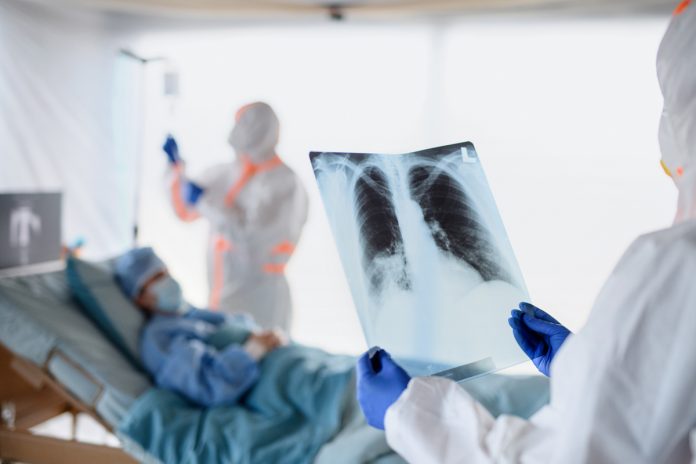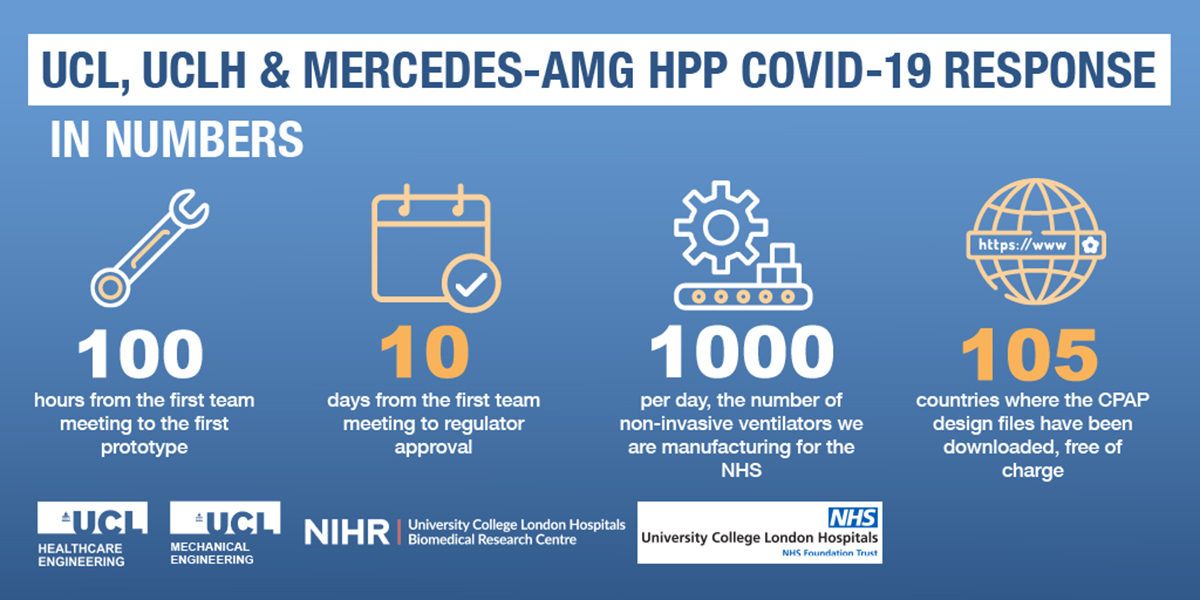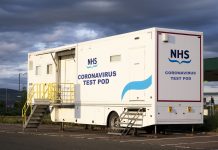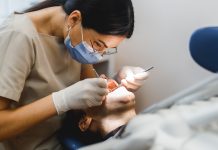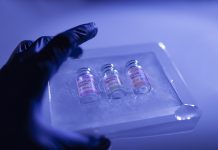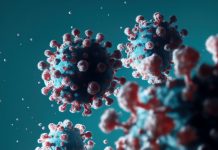Jane Kinghorn, Director at UCL Translational Research Office and Nick McNally, Managing Director Research UCL/UCLH, describe some of the approaches taken by the scientific community in supporting hospitals dealing with the COVID-19 pandemic
In this article, we describe some of the approaches taken by the scientific community at University College London (UCL) and our Biomedical Research Centres (BRCs) in supporting our partner hospitals deal with the current COVID-19 pandemic.
At the time of writing this article (19th May 2020), the initial peak of COVID-19 infection has passed in London, with peak deaths occurring over a four week period from 3rd-24th April (Office of National Statistics). In this relatively quiet period (for non-clinical staff that is), we thought it’s a good time to pause and reflect on the amazing amount of activity that our staff and scientific community within UCL, our Biomedical Research Centres (BRCs) and our partner hospitals have been involved in, contributing to the national effort.
From the very beginning of the onset of the pandemic, UCL and its BRCs singular mindset was how can we help our NHS Trusts prepare and support our patients (COVID and non-COVID alike) along with support for the wider national effort. The amount of activity and the speed of execution has been truly breath-taking.
UCL provides vital resources to frontline NHS
UCL has encouraged and supported their staff in all aspects of volunteering prior to and during lockdown. From the early part of March, all medically-trained academics at UCL were released from their research and lecturing responsibilities to support NHS services. UCL’s senior medical students were given the opportunity to help, along with dozens of other highly skilled scientists working in our labs. Many of our non-clinical administrative staff have also volunteered, such as in the Nightingale Hospitals.
As well as the workforce, we are continuing to contribute to the national effort with space, equipment and consumables. We have donated a large number of ThermoFisher PCR machines to the Lighthouse testing centres along with manufacturing antimicrobial hand wash for use at UCLH as well as making PPE face masks and eye protection.
Acceleration of biomedical translation at warp speed
Biomedical translation is a team sport that requires multiple players to be aligned and pulling in the same direction. In organisations with a scientific community as large and complex as UCL’s, our BRC’s and NHS trusts, pulling in the same direction is often a challenge as multiple disease conditions compete for the same limited resources. We have tried to address aspects of this through coordinating professional support and sharing knowledge of biomedical translation by creating Therapeutic Innovation Networks (TINs). TINs are multidisciplinary networks that bring together research in major therapeutic modalities (devices, diagnostics, drug repurposing, biologics, small molecules, cell & gene therapies, regenerative medicine) from across UCL and partner NIHR Biomedical Research Centres (BRCs). It’s this multidisciplinary approach that allows biomedical translation at speed.
We have a tremendous track record of therapeutic innovation and an exciting pipeline of opportunities, but in the past two months, we have observed the power of putting aside competing rivalries and aligning considerable resource for the common good, to save lives.
Designs for life-saving breathing aid – UCL Ventura
A partnership between University College London Hospitals, UCL and Mercedes-AMG High Performance Powertrains, led to the creation of the non-invasive breathing device, called UCL Ventura breathing aid in just 100 hours from the initial meeting to the production of the first device!
The UCL-Ventura breathing aid, a Continuous Positive Airway Pressure (CPAP) device, helps COVID-19 patients with lung infections to breathe more easily when an oxygen mask alone is insufficient.
Learn more about this case study of UCL biomedical translation at speed and how the Mercedes F1 team are helping fight coronavirus, here.
The stimulus was learning from Italy’s experience of fighting the pandemic to make a difference for patients with the infection. 10,000 of the UCL Ventura devices have now been delivered to 46 NHS trusts forming an important part of the armoury against COVID-19. Delivering at this unprecedented speed was not easy. Once the front line clinicians had come together with the engineers, the alignment of regulator, production, procurement and distribution systems was needed. It also required the input of staff at all levels of the UCLH/UCL partnership, from rapid sourcing hand gel for the engineers to use in the repurposed lab in King’s Cross, through to influencing the highest levels of government to secure backing for CPAP.
The designs of UCL-Ventura have now been made freely available to support the global response to COVID-19 and as of 5th May, the CPAP design licence had been downloaded in 105 countries, spanning Europe, Asia, Africa, the Americas and Australasia. Additionally, around 50 NHS Trusts have taken delivery of CPAP.
The CPAP story has been hugely successful, but there are many other excellent examples of biomedical translation at speed from each of our TINs – of energetic, new collaborations and approaches, of team science at pace. From utilising clinical insight in real-time to propose the use of existing therapies repurposed to treat COVID-19; to mobilising our data analysis community to understand the disease (in adults and children) and its progression; to establishing new diagnostics and new novel therapeutic approaches; to understanding the mental health implications for our workforce and the wider population; to re-thinking the future provision of eye services post COVID-19.
We have put together a series of online seminars (open to all) highlighting the impact of this team science in relation to the response to Covid-19 associated with each TIN. Approaches used to overcome the usual bottlenecks will be discussed along with useful insights that we can apply to our pipeline of therapeutic opportunities. These seminars will be highlighted on our TIN website along with registration details.
For further information regarding UCL’s contribution to COVID research, visit: https://www.ucl.ac.uk/covid-19-research/
The ‘Coronavirus: The Whole Story’: https://www.ucl.ac.uk/ucl-minds/podcasts/coronavirus-whole-story – podcast highlights UCL’s interdisciplinary expertise on COVID-19 – focusing on its management, mitigation, eventual halt, and preparing for a post-coronavirus world.
UCLH BRC COVID-19 research updates: https://www.uclhospitals.brc.nihr.ac.uk/covid-19-research-updates
GOSH BRC news: https://www.gosh.nhs.uk/research-and-innovation/nihr-gosh-brc/brc-news
Moorfields BRC news: https://blogs.bmj.com/bmj/2020/05/05/no-going-back-how-patients-and-professionals-are-exploring-the-future-of-eye-services-beyond-covid-19/
Please note: This is a commercial profile


